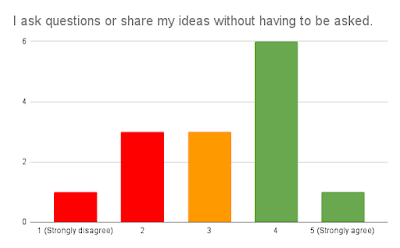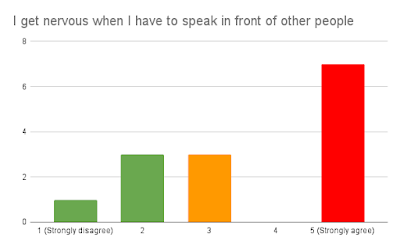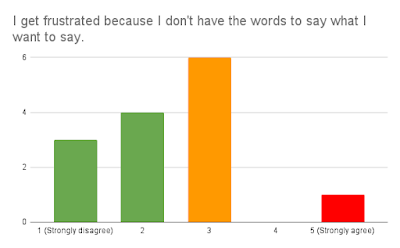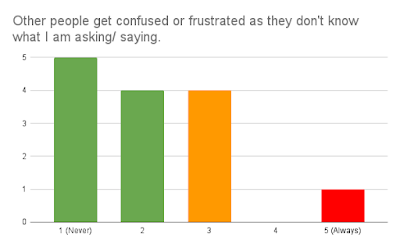It was unfortunate that this year I wasn't able to attend Bursts and Bubbles in person as I was leading a school trip. I pre-recorded my summary burst so it was able to be shared at the event.
Kia ora, my name is Hannah Burton. I am the Creative Space and Extension teacher at Pt England School in Auckland, New Zealand. I began teaching at Pt England School in 2016 and am now in my 10th year here. During this time, I have been in the Manaiakalani Digital Teacher Academy, been a Manaiakalani-Google Class OnAir teacher, a Manaiakalani Innovative Teacher and a within-school Kahui ako (CoL) teacher.
Monday, 5 December 2022
Bursts and Bubbles 2022
Tuesday, 22 November 2022
Thinking ahead to my possible inquiry for 2023
Below are some thoughts about where my inquiry may go next year.
What achievement challenge are you considering as an area of focus in 2023 and why? Include in your WHY both evidence and your own passion/expertise
Improve the achievement of students with additional needs in the learning areas of English/key competency using language symbols and texts
I am in a unique role where I get to see children from right across the school. I want to put more energy into creating some progressions and variations to the Creative Space programme to account for children with additional needs so they can all achieve in some way.
This is something which I have observed by giving variation in tasks throughout the year, however what do I do when there is a child who refuses to take part?
Survey to find out why they aren’t taking part.
Ask what they want to be doing?
What could I do to help them achieve?
What would an engaging task look like for them?
What learnings from the 2017 - 2022 CoL teacher inquiries have informed or inspired your thinking.
This year there were many CoL inquiries into engagement and enjoyment: Robyn Anderson and Kelsey Parrant looked at this for reading. Christine Tupou-Fonua looked into student and teacher wellbeing and how that influenced achievement, enjoyment and engagement.
I want the children to come to my space and feel that excitement, enjoyment and as a result, achievement - but how do I achieve this for the children who find it more difficult to focus?
How would your work support Manaiakalani pedagogy and kaupapa?
Learn-Create-Share
Transferrable Creative tasks which can also be done in the classroom - ubiquitous
Engagement of children through the create
Transferrable skills
Making strong and replicable progressions for different learning experiences where teachers can challenge children, pull back if it’s too much or look at alternatives if it’s not engaging some children.
Which elements of the extensive Manaiakalani research findings inform or challenge you as you think about this?
2017 research into the main teaching activity observed: conference, instructional, learning model, behaviour/management, q&a or roving.
Developing in Digital Worlds: 3 21st century skills in a digital environment - cognitive, interpersonal, intrapersonal. The benefits of a digital environment in teaching key comps for children.
I could rate children on key comps at the start of the year compared to the end of the year.
How would you like to be supported in 2023 as you undertake this inquiry?
Regular release so I have guaranteed, regular time to work on my inquiry. This is really important as I don’t have the children constantly in front of me as classroom teachers do.
Collaboration between myself and classroom teachers to support the target group of children.
How would you plan to support your colleagues in your school with THEIR inquiries and/or teaching in the area you are exploring?
Creative activities which can be used in the classroom to support the children with additional needs.
Support of children in the key competencies to lead to the feeling of success for these children.
Monday, 21 November 2022
Bursts and Bubbles 2023
Last week, the annual Manaiakalani Kahui Ako Bursts and Bubbles was held! I picked out some of the inquiries which really resonated with me this year which I could utilise in my role.
Dot Apelu: Focus on supporting children to connect with their local community.
Scott Mansell: Emphasis on local histories to raise engagement with learners.
Jo Gormly: Building solid foundation of literacy.
Kelsey Parrant and Robyn Anderson both focussed on enjoyment of reading. Robyn's inquiry focus made me wonder how I could share tips for good reading etc on PENN. This is something to think about moving forward!
Christine Tupou-Fonua: Teacher & Student well-being - how does it influence achievement, engagement & enjoyment?
Poto Faalili: Preparing Year 8 students for Year 9.
Monday, 14 November 2022
Videography Rubric - Results
I am going through the video footage taken by my target students who have been out to video at various events. I have marked them against the rubric I created to compare the quality of the video they have produced. Below are the results, put into graphs.
Monday, 19 September 2022
What does Enthusiasm tell us?
Over the last couple of weeks, I have had two videographers from my target group of students who have shown interest in being the videographer at in-school events. In these situations, they have been the ones who have suggested being the videographers. This sign of enthusiasm tells me a lot about the mindset of these students, how they feel valued and confident in themselves and that being a videographer is something they are good at and can lead in.
This anecdotal evidence is hugely valuable to see the success in using videography as a way of developing confidence in some children.
Monday, 5 September 2022
Footage Rubric
I have created a rubric which I can use to assess the quality of footage the students gather during a videography experience:
Anecdotal Reflection
So far, my inquiry is going very well. I have started sending my target group of children off on sports tournaments as videographers and the response from them is really positive. One student has now filmed at 2 tournaments so I am beginning to get self assessment responses to form a comparison.
Responses from the students has been positive and they are starting to be more reflective with the improvements they are making.
As the students begin going to more tournaments, I will be able to start comparing their footage to see how it has improved. I therefore need to create a rubric to assess the quality of the filming.
Monday, 29 August 2022
Roaming Videographers Feedback/Survey Responses
The children who filming at sports events last week have now given feedback and responses to their experience. I have compiled the responses here:
Monday, 22 August 2022
Videography experience - Self Assessment/ Survey
Today I created a survey for children to fill out after being a videographer at an out-of-school sporting event. We have 3 events this week so it will be really interesting to see how they get on and find the experience!
The survey I have created is quite open-ended to allow the children to tell me what they have got out of the experience.
Friday, 19 August 2022
How will I collect information about implementation of changed practices/intervention?
Hypothesis: If a less experienced classmate is supported by a more experienced classmate to learn a new skill, then their confidence in this skill will begin to develop. Confidence will begin improving in this skill as well as in other areas of school and life once they are out making decisions for themselves as members of the PENN (school news) crew.
Inquiry Question: How does confidence of children improve by being given leadership roles as part of the school news team?
This is my second year in the Creative Space role. Last year, a lot of time was spent in Lockdown and when we were at school, we had to run things a bit differently. We were fortunate to have some sports competitions throughout the year. Last year, I relied on children who came to me expressing an interest in being videographers for sports tournaments. I also relied on children who had previously been presenters on PENN news. I worked with a small number of keen year 5 children to begin training them up as news presenters.
This year, I began by utilising the same children who I had as my PENN crew last year. I had two keen year 7 children who expressed an interest in being videographers for sporting events. I had two keen year 8 children who expressed an interest in being videographers for assembly.
More recently, I have begun implementing a different approach. In the first half of my inquiry, I have identified a target group of children whose confidence I want to develop through being members of the PENN crew. These children are unlikely to be children who would step forward and ask to be given an opportunity like this. Instead, I am encouraging them to step into this role.
During the first half of this term, I have begun transitioning towards these target learners being the regular PENN videographers and photographers. One of these children has even stepped forward to give presenting a go!
During the final term and a half of this year, I will try to give these children as many opportunities as possible. I want them to see themselves as the PENN roaming videographers and photographers.
I will create blog post summaries of these experiences. It will be essential that I gather self-assessment data from the children after these experiences as I am not present with the children when they go out and video at sports events.
Other data that would be useful to gather will be to create a rubric to mark the quality of the footage that the children video. This will be important to make any comparisons in the quality of what they produce between now and the end of the year.
Restating my inquiry question and chain of events/ theory of action
Hypothesis: If a less experienced classmate is supported by a more experienced classmate to learn a new skill, then their confidence in this skill will begin to develop. Confidence will begin improving in this skill as well as in other areas of school and life once they are out making decisions for themselves as members of the PENN (school news) crew.
Inquiry Question: How does confidence of children improve by being given leadership roles as part of the school news team?
Monitoring Progress (Assessment):
- Self confidence survey (see previous blog post and graphs)
- Anecdotal notes of children's confidence (from past teachers)
- Empowerment and Agency progression
Chain of Events (What I have done so far):
Chain of Events (What I will do next):
Tuesday, 9 August 2022
Updating my Class Site for the PENN crew roles
I realised when assessing my teaching that I could be adding more to my class site to explain the roles that are available for the PENN crew.
I have begun adding to my class site so interested children can explore and find what News Roles may interest them:
The next step could be have the more skilled children make promotional movies to encourage other children to join up. They could mention such things as:Inquiring into my teaching practice
Hypothesis:
If a less experienced classmate is supported by a more experienced classmate to learn a new skill, then their confidence in this skill will begin to develop. Confidence will begin improving in this skill as well as in other areas of school and life once they are out making decisions for themselves as members of the PENN (school news) crew.
What specific aspects of my current teaching are relevant to my hypothesis:
How am I teaching the more experienced classmate how to follow the values of the Tuakana Teina approach?
- Ako (learning/teaching)
- Manaakitanga (caring/uplifting each other)
- Rangatiratanga (uplifting students)
- Whanaungatanga (relationships)
- Tuakana Teina (apprentice-expert)
At what point do I as the teacher let the less experienced classmate start having more independence from their more experienced peer?
What is my role in this if the more experienced peer is taking on the 'teaching' role?
Formative information about your current strengths and areas for development:
Student voice (also in previous blog post):
Practices which are currently implemented to support the hypothesis:
I was fortunate enough to have a whole day with my target group and their more skilled peers during our recent Matariki day. However, what practices am I implementing for general day to day improvement?
- Daily PENN crew - photography, video editing & presenting, studio technicians
During the daily PENN session, I teach children skills for developing their photography, video editing and presenting.
Presenters come in at 8am, open the script and rehearse before their turn to present. I give the presenters in the moment support and tips based on their own individual needs.
Photographers get opportunity to develop their skills learned through Creative Space. I give them feedback on their photos on their return, explaining what makes their photos good.
Video editors get autonomy to learn how to transfer files between SD card and iMac. They also learn editing skills through iMovie.
Studio technicians set up the studio (lights, green screen etc).
- Sports events - Videographers and Photographers
Students attend sports event with video camera and still camera. This is a challenging area as I cannot attend the sports event with these children to teach them new skills and techniques.
What changes can I make to my practice?
Currently, there is no implementation of a weekly training time for the children who are photographers and videographers. This is something I should definitely be implementing to explicitly encourage confidence for these children. This could be a before school on Friday session (since I don't run PENN on this day) OR a weekly lunchtime session (where we go and film sports trainings to learn skills).
What do I need to do to implement this?
Videographers lunchtime club - Meeting together regularly to learn the skills of videography and photography.
More mileage of videography and photography for these children.
How can I measure changes to my practice?
Monday, 1 August 2022
How did the children respond after the first opportunity to be videographers?
After the group of children had an opportunity to be videographers at our school Matariki Day alongside more skilled peers (Tuakana Teina), the children filled in a similar survey to their primary survey. I was interested to see if their levels of self confidence altered after just one opportunity to be videographers.
Here are the comparisons of the students responses between the first survey and the second survey:
These findings suggest that these children are going to need longer implementing use of videography for the school news, to improve their confidence. I hypothesise that confidence will begin improving once they are out making decisions for themselves as members of the PENN (school news) crew.
Monday, 27 June 2022
Beginning implementation
Last week, I had the perfect opportunity to implement my change in practice. We had a Matariki celebration day where I had a whole day to focus on capturing the day across the school! I created five groups of 3 students who worked in teams to capture the learning from the day for their allocated team. In each group, there was an 'expert' (a child who had already done some videography and editing) and two students who were to learn the skill.
The day was a great success! The groups talked lots, there was an instant improvement in confidence from the students who were learning the skill (as well as the student who was teaching the skill) and every group managed to film and edit a movie to get a finished product. From my point of view, I noticed the improvement in confidence through:
- Laughing, smiling and talking
- Focusing on the task
- Sharing of ideas
- Taking turns
- Asking questions
It is going to be important to find out from the children what the positive's were for them from this one day of Tuakana Teina. Today I am going to construct a survey to get feedback from the children about the day.
Monday, 20 June 2022
Cycling back to Hypothesis generation now I have identified a potential catalyst
"If you carry one handle of the kete and I carry the other handle we share the load." (Aroha Puketapu & Graeme (Kereama) Smith).
Check out this great description of Tuakana Teina on TKI.
Important Māori values in this Tuakana Teina approach to be aware of (see video below to see these explained):
- Ako (learning/teaching)
- Manaakitanga (caring/uplifting each other)
- Rangatiratanga (uplifting students)
- Whanaungatanga (relationships)
- Tuakana Teina (apprentice-expert)
Article from Inclusive Education with some great ways to build confidence in the classroom. Many of these are things we are currently doing at our school.
Potential Catalyst for Change: Using the pedagogical approach of Tuakana Teina
What I am trying to develop: Confidence/ Self-esteem
Potential Hypotheses ("If _____ then ______")
1. If I pair children up with more experienced classmates, then confidence of the less experienced partner will develop.
2. If a less experienced classmate is supported by a more experienced classmate, then their confidence will improve.
3. If a less experienced classmate is supported by a more experienced classmate to learn a new skill, then their confidence in this skill will develop as well as their confidence in other areas of school and life.
4. If children have opportunities to learn a meaningful and purposeful skill alongside a more experienced peer, then they will develop in their confidence to speak up and lead.
Monday, 13 June 2022
Stopping, Reflecting and Refocussing my Inquiry
Today I continued looking into research but realised I was still uncertain about what I was actually trying to achieve. I stopped and reflected on who my target group are. The target group are children who showed low confidence in terms of speaking, presenting and sharing ideas. Understandably, I have gone down the path of oral language and what makes a good 'speaker' however when considering the big picture, I don't believe I am going to get good results if this is my focus with this group of target learners. I first need to support development of their confidence before I even consider supporting them to become better speakers.
During a Kāhui Ako meeting at the beginning of this term, Across School Teacher Amy Tofa, suggested using Tuaka Teina to develop children's confidence. I am in a unique position where I have children ranging from year 5 up to year 8 who are all experienced and skilled in Presenting, Videography and Video Editing. I also have children who could benefit from being paired up with a supportive, patient and experienced student who can support my target learners in developing their confidence through various roles in the production of our school news.
This week, I plan to introduce these Tuakana-Teina partnerships.
How this will look:
1. Presenters. Any children who have been paired to develop a potential presenter will attend our news filming at 8am on Monday through to Thursday. They can being by practising the same script as the Tuakana and as buddies, will decide when the Teina is ready to present. They can use tools such as quicktime to develop the confidence of the Teina, even if they don't yet have the confidence to present in the actual news.
2. Videographers. Each Tuakana will support a Teina by taking them along to sporting events and other school events to film together.
3. Video Editing. Each Teina will work with Tuakana to edit footage from sporting events, student movies from around the school that have been filmed by Videographers. This could be the same children who were the videographers.
Assessing speech
To assess children's speech, I need to create a rubric. I researched ways that people have previously used rubrics to measure speech.
Fountas & Pinnell's (2010) Six Dimensions Fluency Rubric
This rubric can be used to measure:
- Pausing
- Phrasing
- Stress
- Intonation
- Rate/pace
- Integration
- Expression & Volume
- Phrasing (also in Fountas & Pinnell's rubric)
- Smoothness
- Pace (also in Fountas & Pinnell's rubric)
- Rubric with same focus points as the fluency rubric above.
- Expressive oral language has been seen as important for a long time. In American education, many children read from the bible and there was an expectation that they read fluently.
- Early 1900s: a push for silent reading over oral reading, with valid justification for this, oral reading became less expressive.
- Report of the National Reading Panel (2000): 3 aspects of fluent oral reading: rate, accuracy, expression.
- Prosody: How one reads with expression (not just the superficial features of consonant and vowel sounds).
- Prosody <---> Comprehension (Schwanenflugel and Kuhn)
- Automated measuring tool: Praat (2001) by Paul Boersma and David Weenink
- Multidimensional fluency scale (MDFS). Zutell and Rasinski - Found to create reliable and valid scores.
- This article recommends that human scored assessment tools are more effective than computerised tools as more is picked up via observation in terms of oral reading aspects. It is important for the human assessment tool that the rater/scorer is consistent otherwise reliability and validity reduces.
Monday, 30 May 2022
Researching the topic
Through researching the topic, I found an article which discussed the process of using public speaking and oral presentations in the classroom.
Boyce, Alber-Morgan, Riley (20067). Fearless Public Speaking: Oral Presentation Activities for the Elementary Classroom.
Through communications with Naomi Rosedale from the Research team at Manaiakalani, I was reassured that Public Speaking was the correct avenue to be looking down for my inquiry however, I needed a bit more direction as this is still quite a vast topic.
Naomi also suggested I look into read aloud - in particular vocal modulation and prosody. She also suggested I look into 'journalism.'
With a focus on confidence, Naomi suggested I need some baseline data of speaking (by getting the children reading aloud or speaking) as well as confidence (self-efficacy). I have already had children fill out a questionnaire/survey for confidence/self-efficacy however I haven't yet got any baseline data of speaking. This is therefore my next step. I will need to formulate a rubric for speaking which includes such things as delivery, content and audience awareness.
Something I should be aware of (which my attention was drawn to during communicaitons with Naomi) is whether my focus is on scripted or un-scripted oral language. These are quite different things. In terms of the children I am focussing on, I think my focus for this year will be on scripted oral-language as I want my focus to be on developing confidence for these children. The children who I would like to work with are not my general news crew, but a group of children with which we want to develop confidence.
Monday, 23 May 2022
Graphing the data
I have begun to graph data on children's self confidence.
Feeling Listened To:
Speaking my Thinking
Monday, 9 May 2022
Preliminary Data
I have begun gathering some preliminary data for my target group of children. These children were selected due to being at the 'reading to learn' phase of their reading development. I have selected children whose reading ages are at 9 years and above as these children will be required to read from a script which changes on a daily basis.
Using my knowledge of these children as well as asking for teacher recommendations, I have selected a group of children who are noted as lacking some confidence or oral language capabilities, despite their confidence in reading and writing. These children are also children who show potential in developing their confidence. This information was found through anecdotal notes from previous teachers, conversations with teachers as well as my own knowledge of these children.
I asked these children to fill in a questionnaire about their own confidence and communication abilities.
I colour coordinated responses from this survey to create a picture of self confidence.
Example 1:
Example 2:
From this survey, I have created a target group of students. Students in the target group are children who scored orange and red across a number of their responses.
Their responses sat alongside the responses of a group of children who demonstrate strong confidence, oral language and communication. These children will not be in my target group as they always have strong self confidence. This will be some of my baseline data which will be compared at the end of the year.
Once I have found all children in my target group, I will use a standardised self efficacy test to which will be used to compare the responses of individuals in this target from the beginning to the end of the year.




.png)
.png)
.png)


.png)









.png)

.png)
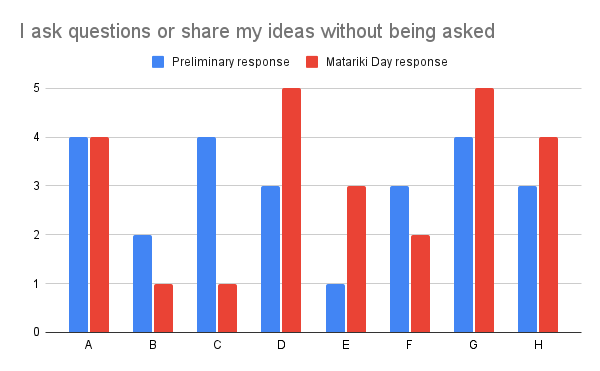
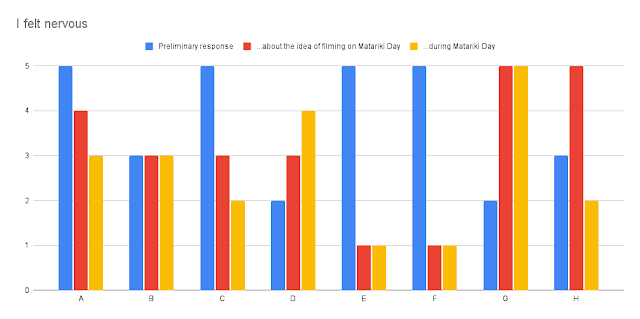

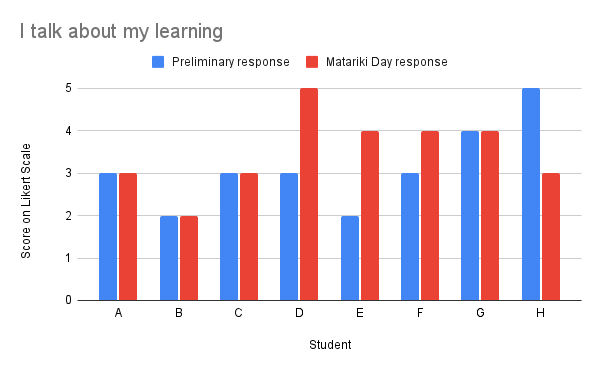
.png)


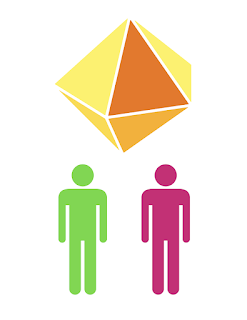





.png)
.png)
